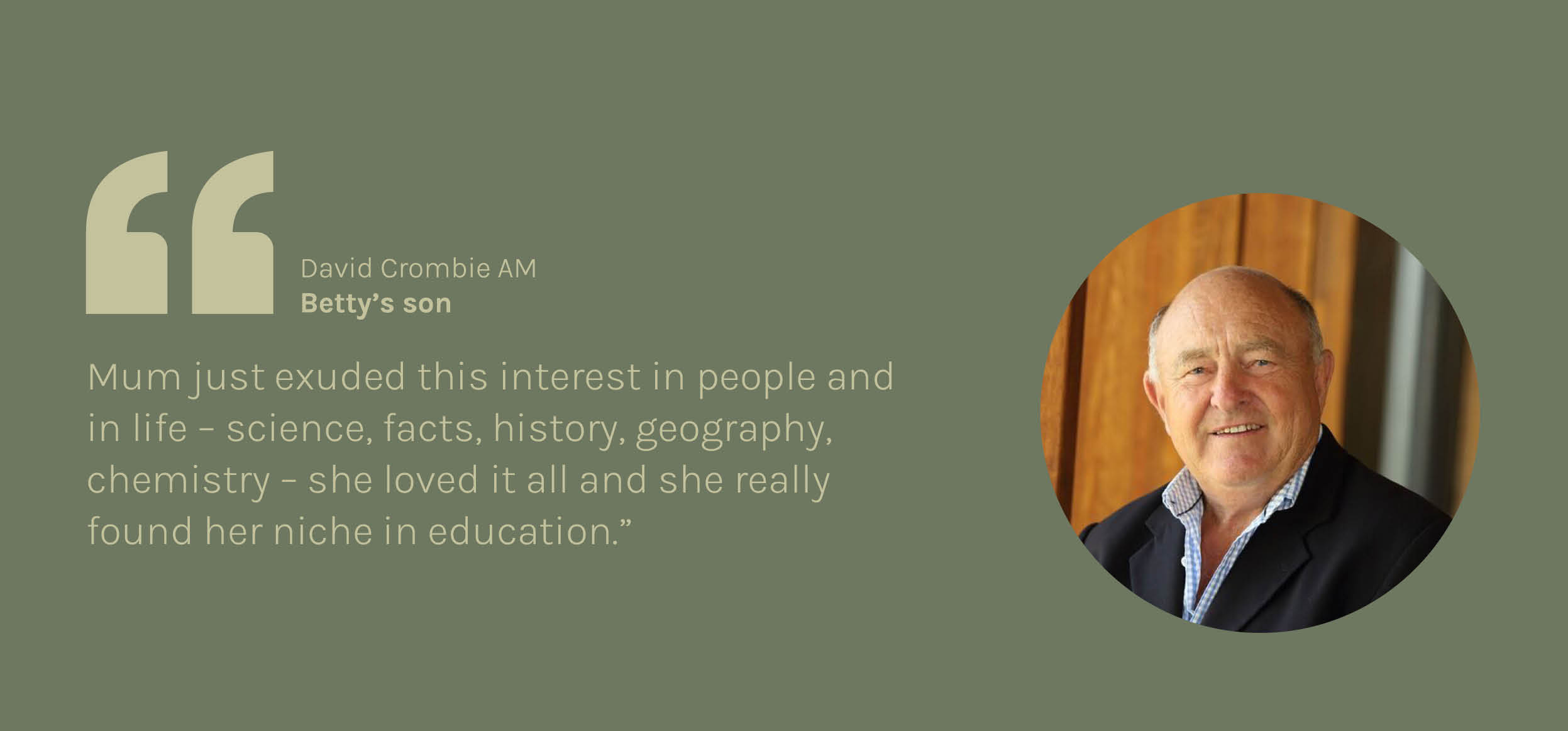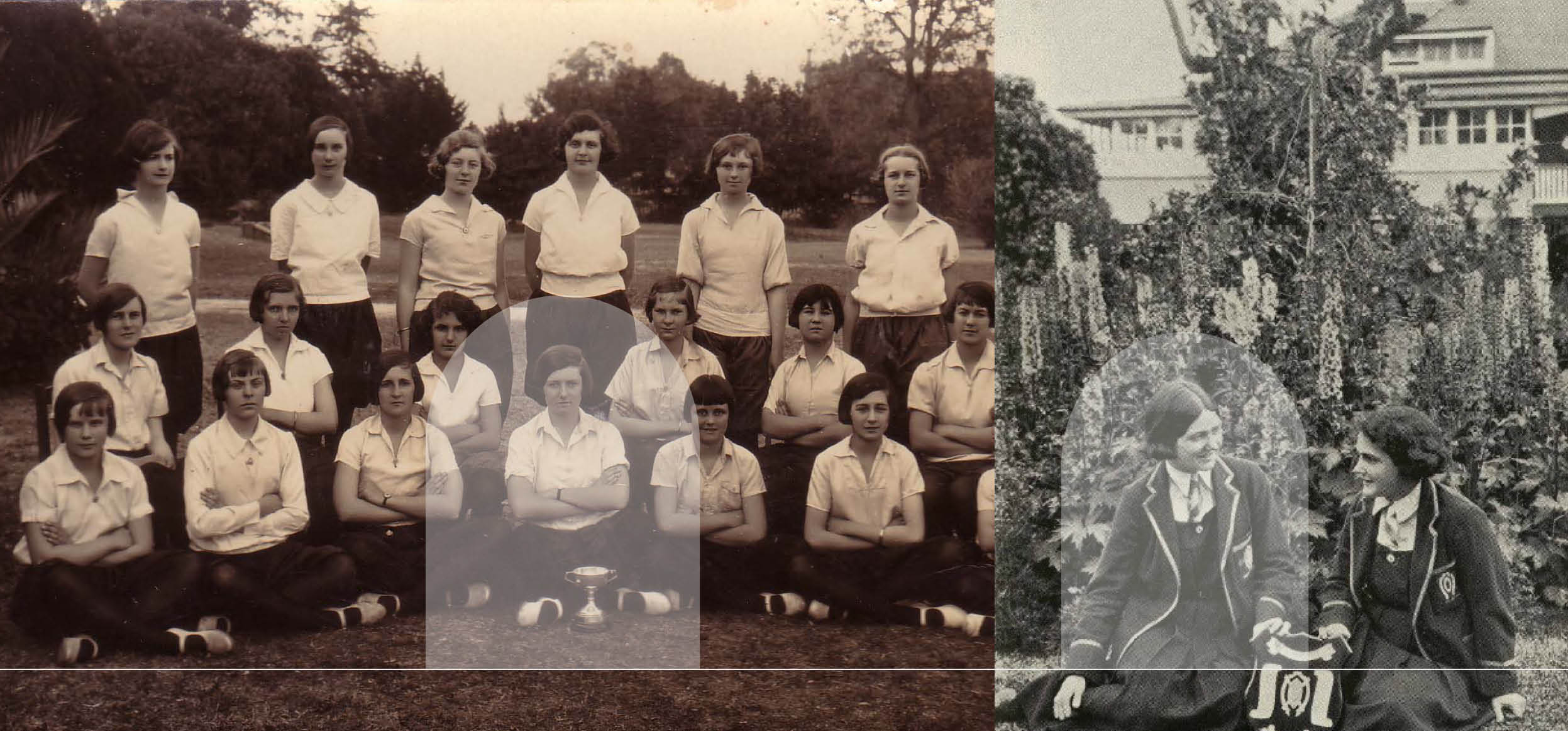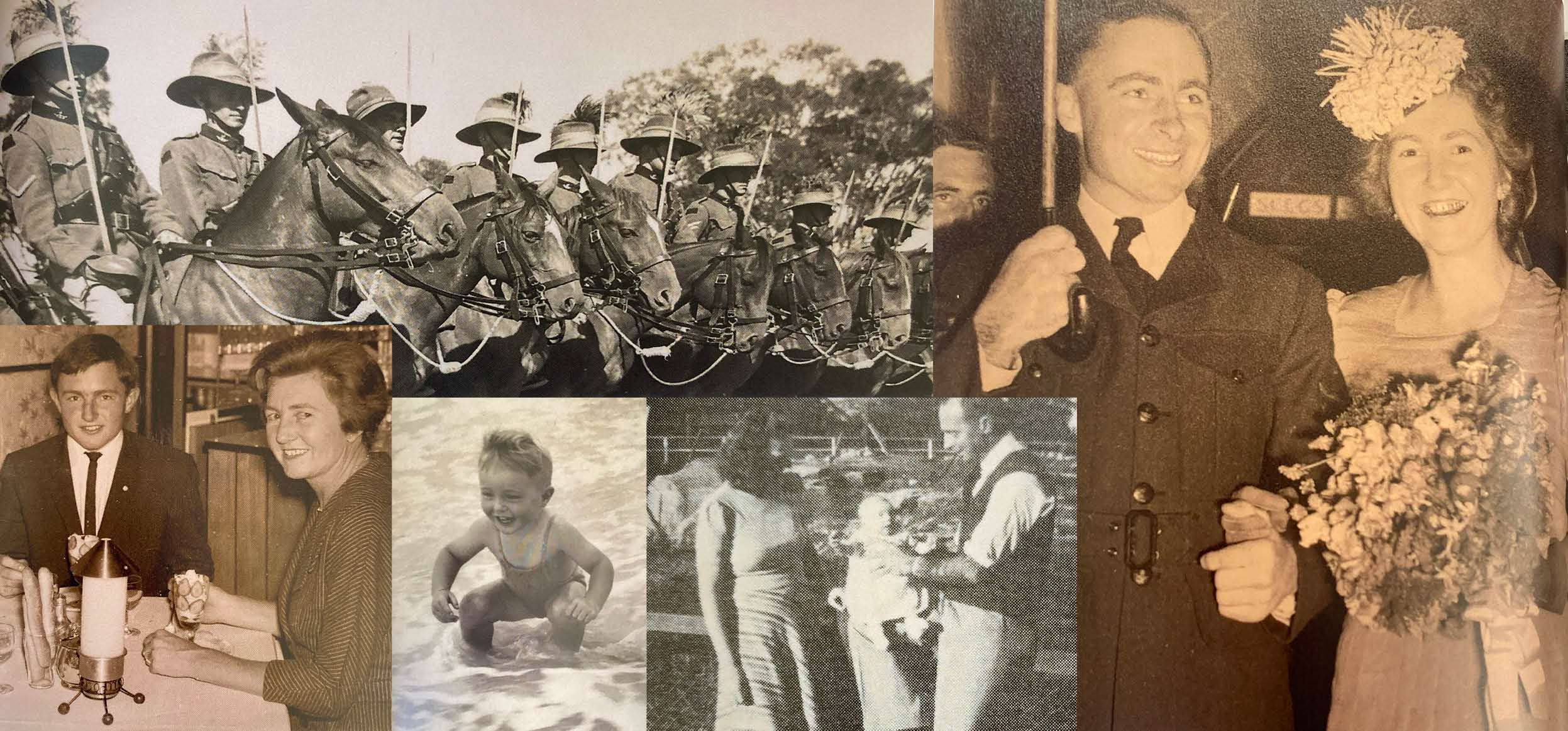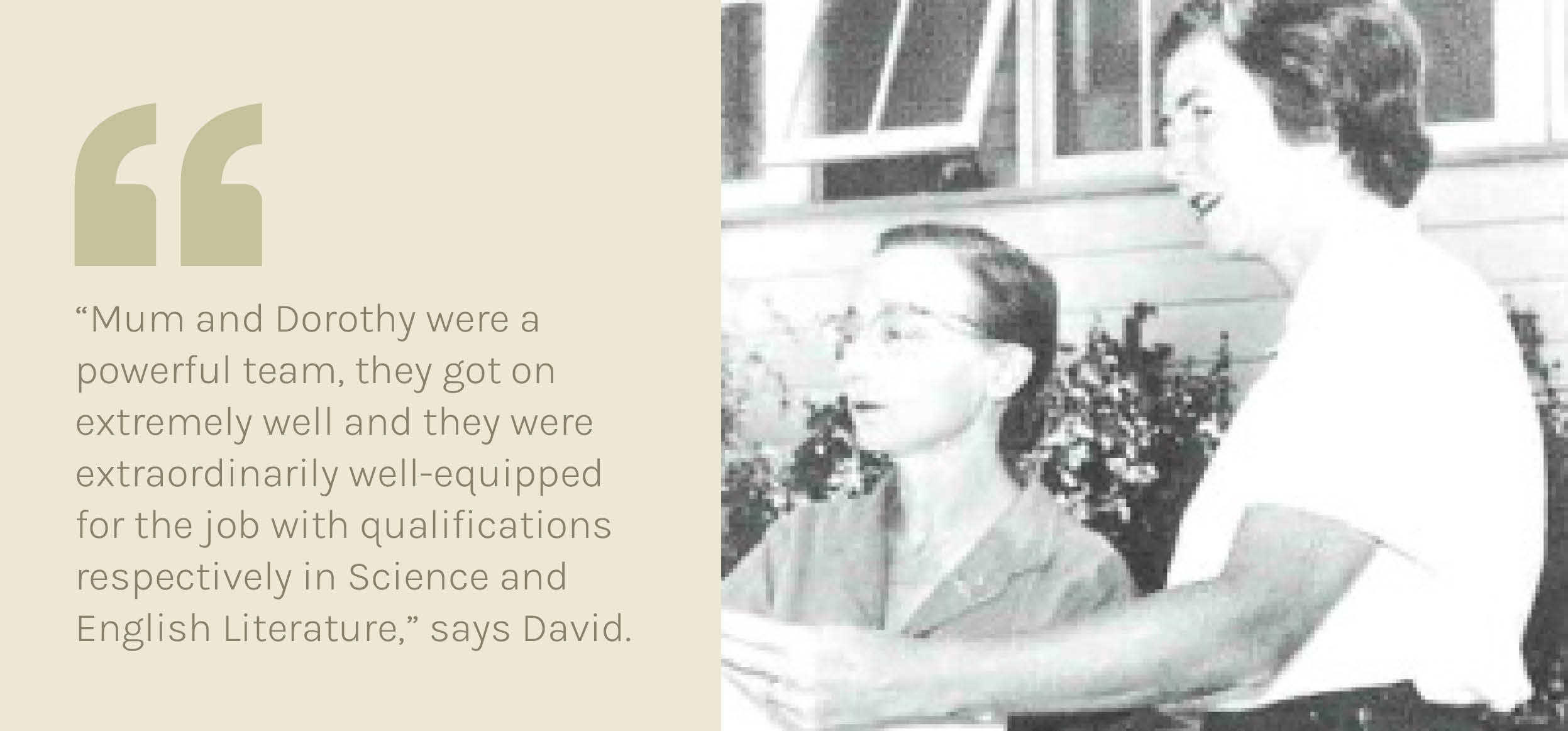Betty Crombie through the eyes of others
It was 2003 when we first shone a light on the contributions and work of Betty Crombie, with our Middle School proudly named in her honour.
According to reports in the local paper at the time, Betty described the tribute as overwhelming. “I would say that I am proud, but I think that pride is one of the seven deadly sins. I suppose the best way to describe how I feel is humbled.”
By all accounts, this quote speaks somewhat to Betty’s very essence; strong of heart, sharp in mind and at the same time, gentle, softly-spoken, kind.
That was more than 20 years ago, with Betty’s connection to the College spanning more than 100 years; her little legs first walking through the PGC doors as a kindergarten student in 1922.
This year, as our attention turns to the redevelopment of the Betty Crombie Middle School, we’re again shining a light on this special and influential lady, whose name and legacy lives on.
Here, we pay tribute to Betty and reflect on a remarkable life, in perhaps the most humbling of ways, through the eyes of others.

“When I look back on my mother’s life, I think what an incredibly brave transformation,” says David as he reflects on her journey from a young girl to a trailblazing student, to war widow, single mum and a remarkable leader with a knack for reinvention.
Betty was the third of four Dean-Butcher children; a well-known family whose roots run deep in the Warwick region.
“Mum had two older brothers and a younger sister; the boys eventually went to board in Sydney while mum and her younger sister Jean attended PGC,” explains David.
“It was just an extraordinary attitude in those days where school wasn’t seen as being all that important for girls but my grandfather, to his credit, believed in education.
“He was an educated man himself and saw to it that mum complete all of her schooling at PGC, which was great.”
It was during this time that Betty would first make her mark on the College, with one of the most noted headmistresses, Constant Mackness, quoted as saying, “No girl has left her mark on the school more than Betty Dean-Butcher.”
And it comes as no surprise when you learn of Betty’s achievements as a young girl – champion athlete, College Dux and College Captain for two years running to name a few.

Following graduation, Betty enrolled in science at Sydney University, despite having never studied physics or chemistry while at school, where more ‘female’ pursuits where focused on.
“From what I understand, mum had a fantastic time at the Women’s College and she made wonderful friends there, meeting people like Judith Wright to name one, and they were friendships that would endure for the rest of her life,” said David.
It was during those university days that Betty’s relationship with David’s dad, Charles Crombie – a former SCOTS student and member of the magnificent 42 – also blossomed. The pair having known each other for quite some time.
“The Dean-Butcher boys knew the Crombie boys well. They did everything together and my mother was the tag along sister, although I suspect she would not have liked being described in that way,” laughs David.
“Following school, dad headed west working as a jackeroo and from what I can gather there were a lot of letters going back and forth and in between Sydney and Longreach, and then the war broke out.”
Charles wasted no time travelling soon after to Archerfield to undertake instruction in civil flying, enlisting in the Royal Australian Air Force in 1940. He was first posted to RAAF Station Richmond, prior to being transferred to Bradfield Park where he was appointed leading aircraftman, before travelling to Canada to complete advanced training.
In this time, Betty and Charles also married, with David arriving on the scene soon after.

Pictured above: Charles Crombie (far left) was part of the Dalveen Light Horse; Charles and Betty on their wedding day; Proud parents; David in his early years; Dinner with mum in his later years
Charles flew in Europe, Malta and was later sent to India and was known as an incredibly capable and courageous pilot, receiving a Distinguished Flying Cross and a Distinguished Service Order in 1943.
“Mum continued working in Sydney and the plan was that as soon as the war was over, they would move to Warwick to look after ‘Mountside’. That would be their life together. It was all clear; mum had a science degree and dad would manage the family property,” said David.
But in 1945, shortly after the war ended, Charles tragically lost his life while completing a training exercise, with his aircraft involved in an accident upon returning to base.
“At that point my mother had to decide what she was going to do with her life; she was on her own in Sydney, she had an infant son – she had to reinvent herself and carve out a new life.
“It’s hard to fathom really. She went from being newly married with all of the plans that young couples have to being engulfed in a war with her husband serving overseas, amid the risk and worry that comes with it, to then being left alone with her baby.”
It was a difficult time where Betty’s strength and resolve would be tested; a time where reinvention was perhaps at its most prevalent. But in true Betty style, she put her mind to work, carving out a career and ensuring stability for her son.
Betty decided to return home, moving in with her father, who tragically lost his wife in the same year, just four months prior to Charles’ passing. They were joined by Betty’s two aged aunts – both of whom travelled regularly from England to Warwick for extended periods, after losing their partners in the First World War.
“I look back and think, ‘what a peculiar set up – a young boy being raised by his recently widowed mother, with the support of two great aunts from England and a widowed grandfather’, but it just worked,” reflects David.
“Mum joined a medical group in Warwick as a pathologist doing all of their blood testing. She loved science, loved facts and loved the logic and order of things. That’s how she thought.
“But working as a pathologist and travelling around the Southern Downs wasn’t all that practical, and of course, I was demanding a bit of attention,” says David.
So, in 1948 Betty circled back to PGC, this time as a teacher, prior to being appointed Co-Principal with Dorothy Green in 1957, by which time David had been shipped off to Brisbane to attend boarding school with Betty living on the PGC campus.

“They had both arrived in Warwick and had fallen into teaching as a result of their personal circumstances and they both had a strong desire to share their knowledge with children.
“There wouldn’t have been many female science graduates teaching during that time, and I think mum taught with great distinction and that was because she loved it.
“She loved children and she wanted to share her passion for learning and empower her students to chase their dreams.
“Deep down her thinking was very modern in wanting to equip her young charges with the necessary qualifications to pursue the careers of their choice.
“The arrangement worked perfectly, mum went to PGC and developed a strong science based curriculum. At the same time she mothered the children who were the family she might have had if the war had not intervened and I have heard so many stories about her engagement with the pupils.
“I recall on one occasion visiting mum in her study at PGC. It was a cold Warwick morning and Mum was sharing her space with a small group of Prep-school students who were sitting by the fire sipping tea and knitting while mum attended to the business of the school day. It was not unusual,” said David.
It’s in these recollections and stories where Betty’s influence and genuine nature truly shines.
“Mrs Crombie was a wonderful Principal. She was kind, compassionate and most understanding. She encouraged me to follow my passion for ballet and even allowed me to attend mass every second Sunday at St. Mary’s! I felt totally comfortable to confide in her and to seek her advice. She was simply the best,” says Laurene Hassard, class of 1963.
Joyce McLellan (nee Reinhard), class of 1962, remembers not specific acts but more importantly, how Betty made her feel.
“Mrs Crombie was a constant figure in my school days … When I was in Senior I was a ‘pro-prefect’ and after assembly Mrs Crombie told me that I used to cry in assembly when I was in kindergarten and she would take me outside and calm me down. Needless to say I don’t remember this but I remember her kindness,” she said.
For Lyn Coggan (nee Robinson), class of 1966, Betty’s nurturing presence remains clear in her mind.
“I was a border at PGC for nine years from 1957 in grade 3 to 1965 finishing grade 11. As primary school students we were in a balcony outside the sisters room. Mrs Crombie used to come every night and read to us and say goodnight. She was like a second mother to us all,” she said.
So many others have echoed similar sentiments when reflecting on Betty and her influence in their own life.
But despite her connection to the College and the community, a desire to spend more time with David, who was by then, busy finishing a Bachelor of Economics at university, saw Betty move to Brisbane in 1966.
“It came time for mum to change direction. She didn’t want to be in Warwick forever and we really hadn’t seen a lot of each other,” explains David.
“And so, once again, she made a very brave choice, and after teaching at St Hilda’s and Sommerville House for a short period, she took on a role with Dow Chemical, a huge multi-national based in America with a laboratory in Brisbane.
“Her work there was focused on cattle tick research. Once again she reinvented herself and set up the laboratory and was testing acaricides and their suitability in the management of ticks.”
By now, David was beginning to carve out his own successful career; one that would see him go onto establish agricultural management company, GRM International (now Palladium) and work extensively across the industry in Australia and further abroad.
During his career, David took on various leadership roles including President of the National Farmers Federation, President Australian Rugby Union, Chair of Meat and Livestock Australia and Chair of the Australian Rural Leadership Program. And, in 2014, he was awarded Member of the Order of Australia services for his work and contribution to the community and industry.
“Mum would always say just give it a go – do your best,” says David. A motto that strongly emerges as he reflects on what can only be described as a diverse and rewarding career. And in David’s own story so many of his mother’s traits appear.
As David’s business and family continued to grow, Betty continued to pursue various passions and interests too, but remained equally invested in spending time with her family.
“It couldn’t have been further from what she was doing, but while working at Dow, she developed a passionate interest in pottery, she built her own kiln and eventually the teaching crept back in when mum started offering lessons,” says David.
“Deciding that she really didn’t want to work for a chemical company and cattle ticks for the rest of her life, she changed direction again, joining the Flying Arts School and travelling around the state.
“She really loved this period in her life, re-connecting with rural families and the old PGC alumni.
“She also became more involved in the Potters Association in Queensland, quickly assuming the role of president. She seemed to take to those roles because she was organised, a nice person and was good at whatever she did.
“People just wanted to work with my mother, it was quite extraordinary to see her in action, she was very quietly spoken but had that steely resolve to get involved and get things done.
“As my wife, Margie, and I started our own family, mum was always so incredibly accommodating, she would be doing lots of things, but she was always available.
“Every one of our five children learnt so much from their grandmother, she took them on trips and on one occasion took our son David on a group nature study tour to Malaysia where they camped out in the jungle.
“My mother always took notice of our children’s interests and found ways to foster and encourage them; it was learning without knowing you’re learning and they all got so much out of being connected to their grandmother,” says David.
And in the same way that Betty served as a source of strength to others, encouraging them to find and follow their passions, it was others who gave Betty her strength too.
“I think my mother sourced strength from her family, and most definitely her father. He was an amazing man, and a well-known and much-loved surgeon,” explains David.
“My great grandfather was a medical researcher who worked extensively with a German scientist on the use of radium in medicine and they did a lot of development work around x-ray technology.
“Mum came from a long line of people who really took responsibility; real doers who drove change; I think that was just in her DNA.”
Without doubt, Betty has left an indelible mark on many within and outside our College community. Beyond shaping the educational landscape at PGC, Betty’s legacy is one of finding your own potential and helping others to do the same.
Her values and way of being saw her develop lasting friendships and rich relationships and those attributes that enabled her to go out and find her place in the world, are the very attributes we seek to instill in our learners of today.
